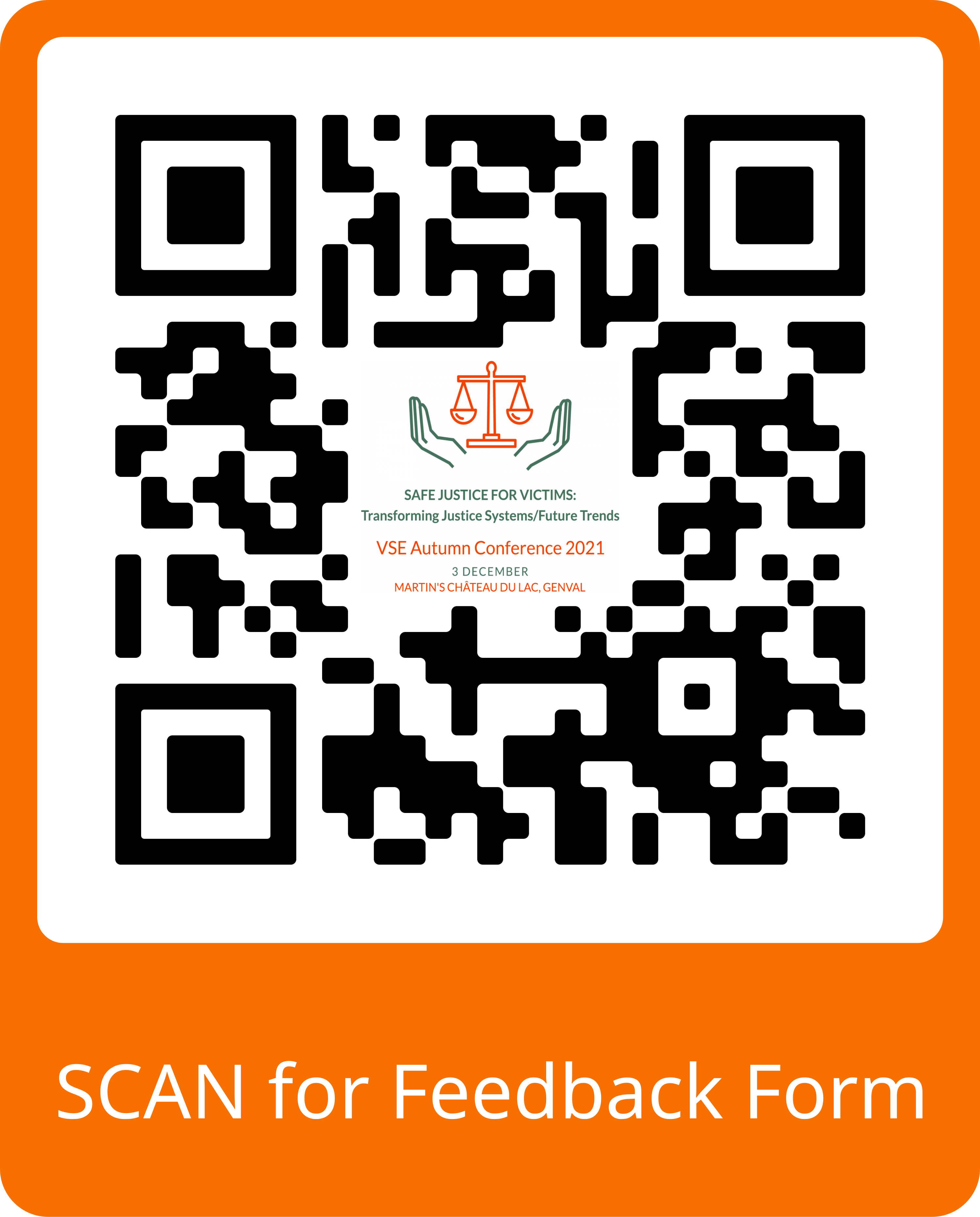VSE’s Autumn Conference entitled “Safe Justice for Victims: Transforming Justice Systems/Future Trends” was held online on December 3rd, 2021. Please find the recording of the event on VSE’s YouTube channel.
We proudly look back at this successful conference that provided the opportunity to discuss the notion of ‘Safe Justice for Victims’. The event’s feedback report is now available here.
The Conference is an international event bringing together the key players working with victims of crime. Between 100 and 150 participants from victim support organisations as well as practitioners, researchers, experts, academics, government officials and criminal justice officials attend annually.
The theme of this year’s edition is ‘Safe Justice for Victims’ which will be the opportunity to discuss the current state of practice of criminal justice system, thereby raising awareness on safe reporting as the first step in seeking justice and addressing the question on what makes the criminal justice system safe for victims? This will be followed by an intellectual discussion on better path forward for criminal justice.
We are truly looking forward to coming together again with all VSE members, partners and friends on 3 December 2021!
Please find the links to join the conference below:
! IMPORTANT: Covid-19 information – Message from VSE Executive Board !
As you will no doubt have seen, around Europe we are experiencing a surge in covid cases and increasing restrictions. On Friday, we were also informed of a new variant – Omicron – and the first case of it in Belgium.
Due to these developments, the Executive Board of VSE met on Saturday 27 November, and with a heavy heart made the decision that VSE’s live events on 2nd and 3rd of December should all be moved to fully online. This means all events will go ahead, but only in the online format.
We as Board members are extremely disappointed and we don’t doubt you will feel the same. We also understand that many will feel the risks are manageable. Yet, ultimately, we must act responsibly not only to avoid risks to individuals but also to the operation of frontline services which may have staff entering quarantine if countries change restrictions during the week.
We knew there would be risks to a live event when we made the original decision to hold the conference in Belgium. This is why we have in place a fully contingency plan for running our events online. We are now in the process of setting up links for everyone to participate and we will inform everyone of the links as quickly as possible.
Whilst we are deeply disappointed to be moving to fully online, we know this is the right decision in the interests of all and we are confident that our online conference will remain highly engaging, informative and inspiring.
Thank you all for your understanding in these difficult times and we look forward to seeing you online on 3rd of December!



